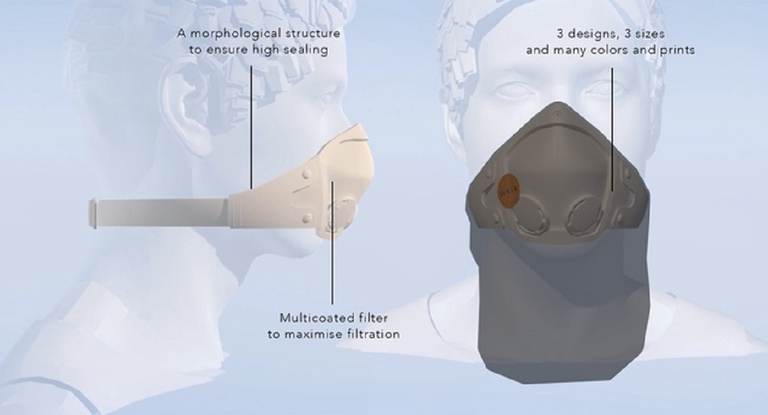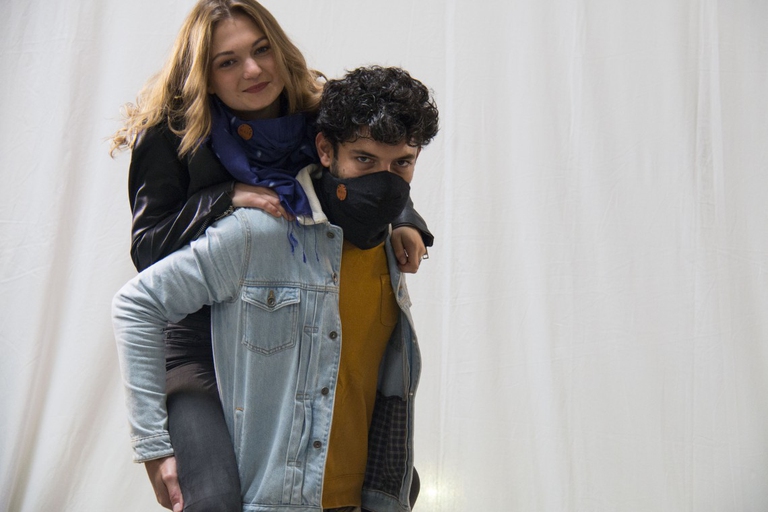
Sharon Lavigne, one of the six winners of the 2021 Goldman Environmental Prize, is fighting to protect her community from plastics corporations.
Cyclists, bikers and pedestrians, Wair has finally arrived. It is an anti-pollution scarf that filters harmful substances in the air and, through an app, indicates less polluted routes.
Every day we breathe huge amounts of harmful substances that have a negative impact on our body: ozone and nitrogen oxide irritate bronchial tubes; hydrocarbon and particulate matter (PM10, PM2.5 and PM1.0) cause respiratory problems; heavy metals and carbon monoxide are highly toxic; sulfur dioxide damages the skin.
With the idea of tackling this the French company Wair has developed, together with a team of experts, an anti-pollution scarf that purifies the air we breathe. Conceived by Caroline Van Renterghem in 2014, year in which she suffered from respiratory problems and Paris registered particularly high pollution levels, this scarf is specifically designed for bikers, cyclists and pedestrians, who can order it online on the Ulule crowd funding platform.
Wair incorporates a mask with two filters that capture up to 99 per cent of polluting substances, allowing those who use it to breathe cleaner and healthier air. The mask, entirely made from foam and covered in vegetable leather, was designed in collaboration with Pulse & Pulpe in a way that is suitable and comfortable for every face shape.
The anti-pollution scarf is available in three models with different colours and patterns, has a modern design and is eco-friendly. The materials used to produce it, in fact, are organic cotton and recycled polyester.
By activating the geolocalisation mechanism with a smartphone the Sup’airman app by Wair, which is connected to the scarf, communicates information on air quality. And that’s not all. The app suggests less polluted routes to follow, warns the user in case the scarf should be worn or the filter should be replaced and provides excellent health tips for those living in big cities.
Siamo anche su WhatsApp. Segui il canale ufficiale LifeGate per restare aggiornata, aggiornato sulle ultime notizie e sulle nostre attività.
![]()
Quest'opera è distribuita con Licenza Creative Commons Attribuzione - Non commerciale - Non opere derivate 4.0 Internazionale.
Sharon Lavigne, one of the six winners of the 2021 Goldman Environmental Prize, is fighting to protect her community from plastics corporations.
Plastic pollution is airborne too. Microplastics are being carried across continents by the wind, as a recent study reveals.
Levels of particulates in New Delhi in 2020 were once again far above safety thresholds, with extremely serious health consequences for its citizens.
A major oil spill in the Ecuadorian Amazon in April has left the Coca River polluted. The indigenous Kichwa are suing the companies whose pipelines broke.
Molecules that eat up plastic waste, including PET bottles, may soon become widely used as scientists leap ahead in developing new super enzymes.
In Italy’s Land of Fires between Naples and Caserta, activists like Carmen Medaglia are fighting to promote new ways of managing waste.
Toxic substances in Kamchatka’s waters have killed 95% of marine fauna and caused health problems for surfers. The causes, however, are still unknown.
A Magellanic penguin was found lifeless on a Brazilian beach: in its stomach, an N95 face mask. Researchers believe the animal died from ingesting it.
The drop in air pollution during worldwide lockdowns helped prevent thousands of premature deaths. But the situation is returning to pre-crisis levels.









